Germany has again surpassed the United Kingdom to become the alliance’s second-largest defence spender.
According to the latest NATO defence expenditure report, Germany’s defence spending for 2024 is projected to reach $97.7 billion (£76.5 billion), compared to the UK’s $82.1 billion (£64.3 billion).
The United Kingdom, which has traditionally held the second position in NATO defence spending, now ranks third with a budget of $82.1 billion (£64.3 billion).
Despite considerable investment, the UK falls significantly behind Germany. The United States continues to dominate NATO’s defence expenditures, with a projected outlay of $967.7 billion (£757.8 billion) for 2024.
France and Poland complete the top five NATO spenders with defence budgets of $64.3 billion (£50.3 billion) and $35.0 billion (£27.4 billion) respectively.
| Top 5 Spenders (2024e) | Defence Expenditure (Billion USD, 2024e) | Top 5 Spenders (2023e) | Defence Expenditure (Billion USD, 2023e) |
|---|---|---|---|
| United States | 967.7 | United States | 875.6 |
| Germany | 97.7 | United Kingdom | 76.9 |
| United Kingdom | 82.1 | Germany | 73.1 |
| France | 64.3 | France | 59.4 |
| Poland | 35.0 | Italy | 33.9 |
These expenditures are calculated based on data reported by each Ally’s Ministry of Defence, according to an agreed definition. The reported amounts represent payments made or to be made during the fiscal year to meet the needs of national armed forces, as well as those of Allies or the Alliance itself.
It is important to note that differences in sources and national GDP forecasts, as well as varying definitions of defence expenditure, may result in figures that diverge from those referenced by the media or published by national authorities. Equipment expenditure includes spending on major equipment and research and development devoted to such equipment, while personnel expenditure covers pensions paid to retirees.
NATO defines defence expenditure as payments made by a national government to meet the needs of its armed forces, those of Allies, or the Alliance. This encompasses spending for Land, Maritime, and Air forces, as well as joint formations like Special Operations Forces, Cyber Command, and Space Command. It may also include a proportion of spending on forces like national police and coast guards, provided they are trained and equipped for military operations and can be deployed internationally.
Pension payments for retired military and civilian employees of military departments are included, regardless of whether these payments are made from the Ministry of Defence’s budget or other ministries. Expenditures on peacekeeping and humanitarian operations, weapon destruction, contributions to NATO-managed trust funds, and the costs associated with inspection and control of equipment destruction are also accounted for in the defence expenditure.
Research and development costs are included in the defence expenditure, even for projects that do not lead to the production of equipment. Spending on NATO common infrastructure is included to the extent of each nation’s net contribution.
For more detailed information and to view the complete report, visit NATO’s official website.



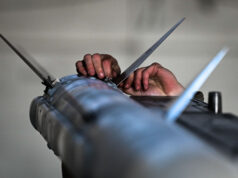

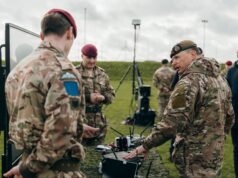
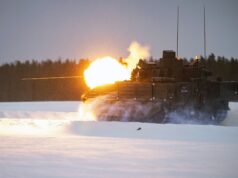
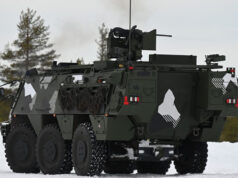

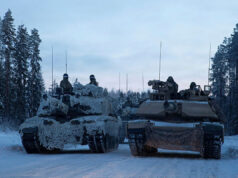

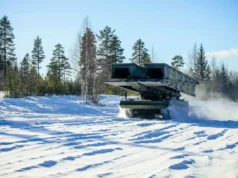


Well given the size of their economy and their geographic position in Europe they should be second.
Exactly. This isn’t that big a deal and should have happened earlier.
Germany waking up to the bear. Looks like they pumped a massive amount into defence this year.
the UK spent 82 Billion? what did they show for it exactly?
and in germany’s case, it’s a one off 100 billion defence spree but you can be sure next year and the year after that, the spending will be considerably down. I expect to see however France increase starting next year as the 400 Billion euro defence plan comes into play
Those €100 bn are meant to be stretched over a period of four years, shoring up the ordinary defense budget to reach or exceed the 2% goal. So spending shouldn’t go down that quickly. The big question is what’s going to happen in 2026 when the fund is gone.
It’s probably not a coincidence that this date means the budget will have to be negotiated by a new government after Germany’s next federal elections in 2025. It’ll either be a hot potato for a CDU-led government in case of an opposition win, or something Scholz can safely double down on because it’d be his last term anyways.
How long will we remain in 3rd place?
The challenge is spending monies effectively in order to gain most effective ‘bang for the buck’ and people. The latter means monies are not always spent on glamourous equipment, but rather more mundane things like accommodation.
So you think will drop further then I assume?
I am not sure MoD spend very much on accomodation!
Mmm well if you stick in a one off $100 Billion uplift fund to try and make up for decades of miserliness what do we expect.🤷🏼♂️
Defence is a long term commitment not a knee jerk reaction and consistency is way more important.
There is an old saying “Lies, damned Lies and statistics”, it may be a lot of cash but what is it as a % GDP ? That’s the NATO Target and I’m willing to bet Poland, UK, France, the Baltic and Normark countries have a higher % GDP.
As for what they are spending it on, just take a look at their next €5.6 Billion 10,000 tonne Multi purpose Frigate the F126.
I’d best describe it as the world’s most expensive Target Ship. Large, slow, diesel powered, chronically under armed and probably incapable of offensive action. It does however have a superb set of sensors so it can detect anyone attacking it, quite what they do about it ?
If you want to look at our ships slightly differently just look up the F126.
As for everyone who is going to jump on the band wagon and shout we need to spend more, well yes we do.
The Sunak Government is about to get toasted but if the next Government sticks to their uplift schedule we will probably be spending more than Germany by 2030.
I have a very strong feeling that is exactly what is about to happen, simple reason is Labour has been hammered every single time it has gone hard left and they are still feeling the bruises. The planned uplift schedule only came about after Labour realised Defence was an issue and started to campaign on it.
I participate in YouGov polls and get copies of rather results, smart Politicians read them and are influenced by them.
Latest Poll puts Defence in the top 6 favourite policies for both Labour and Tory and it’s very consistent at 57% / 56% support for stronger Defence.
FYI the most unpopular policies were reintroducing National Service, dropping NI for self employed and lowering the voting age.
So the Torys win 2-1 in the ‘least liked policy’ game then…they had to ‘win’ sometimes I suppose …
Yep pretty well nails it, though the Greens get a special mention for the overall least popular idea. Getting rid of Nuclear Power 29% think that’s a good idea and 48% don’t. As for the Lib Dem’s every policy was popular except PR, all the others were massive give aways (so what’s not to like if you believe in Money Fairies).
Keep in mind, the UK currently only reaches the 2% goal because the Tories got creative and shifted some accounts from the civilian into the defense budget: https://www.bbc.com/news/uk-politics-36094112
By comparison, German veterans still receive their pensions from the same state pension fund as every other citizen that isn’t privately insured.
A “honest” comparison that would do away with the UK’s creative accounting as well as Germany’s special budget would probably have both countries fall short of the goal with the UK a bit above Germany. Something like 1.8 vs 1.6 percent, mayhaps.
Hi folks hope all is well.
Well it’s about time they started spending more. Realistically, Germany is catching up after many years of under funding. If I recall spending has been around 1.5 percent of GDP?
Cheers
George
If you do quick search you’ll find that the UK is way down the list. The Baltic states have really ramped up spending Estonia, Lithuania are at 2.5%. Poland is out in front as you can imagine.
Since WW2, the Marshall Plan has allowed Germany to focus on industrial development while NATO covers Defence, mainly USA and UK (BAOR etc). Thus a reticence to spend on Defence and to staff anything but defensive capability.
This change is loooong overdue and needs to be the regular contribution not a one off.
It’s clear that industrial domination within Europe is no accident and must come with taking responsibility for Defence and reverting the Merkel delusion that you can trade with the bear and make it house trained..
During the Cold War, (West) Germany’s defense budget was actually very similar to other Alliance members, hovering at around 3-5% GDP. It was not until the 90s that Germany’s – and many other European countries’ – defense budget plummeted below 2% because, as you’ll remember, the USSR as NATO’s premier nemesis voted itself out of existence. It is for this reason that the increase in economic investments was often called “peace dividend”.
Similarly, it would be a mistake to say the Marshall Plan was not a huge economic win for the US as well, considering it created a significant market accounting for 3.6% of all American exports.
Still, I agree with your assessment that it is about time for Germany to take on more responsibility in helping to defend its allies, and current initiatives like the permanent stationing of troops in Lithuania or the Bundeswehr’s activity in the Indo-Pacific give reason to hope, as do the various procurement projects we’ve learned of in the past 1-2 years.
I’d question the sense in NATO applying the same 2% goal to an impoverished Russia when it was meant to fend off the behemoth of the entire Soviet Union, but a promise is a promise, so until this figure is renegotiated, Alliance members should stick to it. And future technologies like FCAS or MGCS are going to be much more expensive compared to R&D in the 20th century — just look at the cost of the F-35 program!
Okay so… that’s not true. It’s not even remotely true. Like, if you dropped an atomic bomb on truth, this wouldn’t even get radiation burns.
Look, at it’s height the BAOR consisted of 4 Armoured Divisions, by the 1980’s this had been reduced to 3 Armoured Divisions and 1 Infantry Division that was based in the UK and would reinforce the BAOR. By todays standards that’s really impressive, we’d only dream of having a full corps, let alone one deployed overseas.
But the West German Army (remember there was also an East German Army) in the 1980’s DWARFED the BAOR: Between NORTHAG and CENTAG it maintained Five Corps level formations.
That’s:
6 Armoured Divisions
4 Armoured Infantry Divisions
1 Airborne Division
1 Mountain Infantry Division
and
6 Light Infantry Divisions (Bearing in mind even these formations had Armoured Battalions and Tank Destroyer Platoons in their orbat).
or 18 Divisions to the UK’s 4.
And just to further the comparison the US had deployed to Europe:
5 Mechanised Infantry Divisions
3 Armoured Divisions
1 Cavalry Division
So half the West German Armies strength. Or put another way: NATO provided 19 Divisions (counting the Belgian and Dutch Corps in NORTHAG and the Candian Division in CENTAG) to the Iron Curtain. West Germany provided 18.
Don’t project the German Peace Dividend of the 90’s and 2000’s back into the Cold War.
Thanks Dern for a fact based clarification
Boom! 💥
What’s the situation now after BAOR, as distinct from the PR spin?
“we’d only dream of having a full corps, let alone one deployed overseas.”
Can you clarify the question? Because there’s a few ways I could interpret “What’s the situation after BAOR”
Do you mean in regards to British Forces in Germany? NATO footprints in Europe? German Armed Forces? US Forward basing? All of the above?
I meant in regards to British Forces in Germany as All of the above, whilst interesting, would be an imposition on your valuable time.
I believe that we are well served here and on Forces News with NATO footprints in Europe, at least the UK contribution.
Hilarious to hear that the combined Luftwaffe and RAF QRA time to takeoff on a Baltic forward deployment had turned into a competition. Both being on Typhoon..
Oh British Forces in Germany is easy. BAOR became BFG (British Forces Germany) after the cold war, which then became BAG (British Army in Germany).
BAG consists off *drumroll*
23 Amphibious Engineer Squadron
…
and that’s it.
Okay if I’m being generous there’s Sennelager training area, some forward deployed vehicles, a munitions store, and the Alpine Training Centre in Bavaria, but in terms of (sub)units, that’s really all that’s left.
(To clarify, not all units where disbanded, I was one of the last to be stationed in BFG, and my old Brigade was just returned to the UK from Germany. Most of the units that have survived round after round of cuts are old BAOR formations).
Thanks for that.
So if I understand correctly we have some training facilities but no actual front line units, just one squadron that supports (Engineers).
That seems like the German Army are on their own, depending on NATO support in practice.
I suppose that aligns with apparent UK priorities; Navy, Marines, Air Force, Army, in that order. So very much a home defence with JEF contribution objective, not any foreign adventures.
Thus Port Stanley, Gibraltar, Cyprus and Oman base are the full extent of UK ambition..
Sorry, what are you on, “The German Army are on their own, depending on NATO Support”!?
Germany is over 600km away from the nearest hostile Power. The German Army, far from “depending on NATO support” would only deploy to support NATO. It’s not 1989, Russian Tanks are not going to roll into Germany at a moments notice, the front line is much further East.
….and wow, that assessment of the British Army is just….
Wrong.
Edit: I’m just flabergasted by this comment, I can understand maybe the lack of subject matter understanding but the LEAP of logic from “The British Army has drawn down in Germany” to “Germany is depending on NATO support.” Like: My guy. No.
Why is it Poland seem to get a lot for their money and we get next to nothing, They have almost totally re armed their Army and we have not even fielded any thing new. A lot contracts and talk but not a lot to show for us, any one wise to why that is? And is n ot as if Poland bought rubbish they spent on to end kiot and a lot of it.
They got all their Abrams while we are still testing C3.
Their navy has half the personnel of the RN, with far fewer subs and blue water ships. Plus no nuclear deterrent and older fighter aircraft (F35 is on order though), all adds up to money being able to be spent elsewhere
Poland is and always has been fixated on Land Warfare as Historically it has a small coastline and sandwiched in between 2 nations with bigger Navy’s (Germany and Russia).
Its Airforce is comparatively weak but as part of NATO it knows other countries will deploy to cover much of that.
And it’s easy to rearm if everything is bought off the shelf rather than developing their own. But boy have they been like kids in a Sweetshop. MBT from Germany, USA and Korea.
We tend to have a much smaller Army and focus on Navy, Airforce and then Army.
dopes seem they get a lot for their money, and quicker than we can get any thing in service. Yes their navy and airforce are not big.
Still at half the budget we have they have got more to show for it.
As said we have to spend more on our Navy and air force, plus the nuclear deterrent, bases all around the world (FI is especialy constly), far more personnel on overseas deployments, training foreign armies and in defence diplomacy jobs. Its not really possible to compare Poland with the UK.
umm, fair points but why does take us for ever to make/build any thing, 7 years to build a type 26 war ship. Seems we spend vast amounts but have little to show for it.
Its only the last 2 years we have started buying off the self ie Archer/RCH 155
I think 7 years to build a Type 26 is very good going. Type 23s were conceived in the late 70s and the first was commissioned in June 1990, so about 12 years from concept to commissioning.
As a nation we do spend vast sums on procurement and sadly there have been all too many procurement ‘fails’ for a variety of reasons.
I think you will find we have bought off the shelf further back than that – most of our UOR purchases were OTS. Arguably the CR1 purchase was MOTS as they had been built for the Shah of Iran who was deposed and unable to take delivery.
UOR’s I agree had to brought off the self but what else? apart from CVR (T) 2 and some engineer kit/Broncos we have not brought an tracked vehicle since C2 came in to service.
It does seem we spend a lot to not get a lot and what we get is small in numbers and nearly 8/10 years over due.
We all know that though, but not as if its got better its been like that since the 70’s.
Almost every thing we have is dues out spares and old, who’s fault is that the MOD’s/Government or the heads of the Army?
We never fully up grade any thing, ever we just run it until is worn out.
I agree. Army vehicle procurement of new vehicles (especially AFVs) and upgrade of existing kit has been dire for most of the last 30 years.
Many folk should line up to take the blame. Depending on the project the Army Staff and its senior leadership, project managers and key civil servants in the procurement organisation (be it DPA or DE&S), politicians, Industry and HM Treasury – can all be blamed to some degree or other.
No wonder that we cannot yet declare our warfighting div as being fully deployable with modern equipment.
BvS10 is tracked, was procured after CR2 and was off the shelf. Just saying.
As a UOR?
No. Core equipment. Viking replaced or supplemented BV206. It was deployed to Afghan in 2006, the year after first deliveries, but was not procured specifically for Afghanistan.
Really, the Armoured Bronco was not a UOR, ok, but it was with drawn from service after Afghan, strange that.
We also pay more for everything in the UK. The Polish Plumber steroetype existed for a reason; UK wages are much higher, so if you have to pay your soldiers less, you can afford to spend more of those standardised USD’s on equipment.
This old chestnut comes up time and time again.
Its not so simple comparing country for country and saying look they’ve more than us.
Poland dont have nuclear weapons on their budget and also don’t have to focus on the navy like uk , though they are upgrading navy. Poland only has to prioritise army and airforce , which in fairness they are doing excellent job. As a whole Poland is a very organised nation with a clear path in goals for its nation in civilian military and political matters with tight govt spending. One great example is Poland reorganised its private defence industries into one collective organisation to produce home grown manufacturing for the military . The uk is still going backwards on all front military civilian and politically . Its impressive watching Poland develop . Uk should take a lesson from Poland as uk obviously forgotten many things it used to do well
Sadly you are very right, we the UK do not seem to get much for our money or get much right,
I did a detailed repose of such a comment a while ago when posters compare such and such without the details that are not so evident. Must try and dig it out.
It would help if everyone could actually see the source report as it really is very interesting. So here is the link
https://www.nato.int/nato_static_fl2014/assets/pdf/2024/6/pdf/240617-def-exp-2024-en.pdf
Tory party talk of 2.5% on defence budget by 2030. Fair enough ,still should be more but that’s another argument .But looking in no doubt Tory party days are over .I fear with Labour the defence budget will just remain the same has it is today with no increase what so ever. Please let me be wrong 🙏 🇬🇧
Note that the UK increasingly uses smoke and mirrors such as including aid to Ukraine to boost its claimed defence spending. Strip these out and baring an unlikely decision by the new Labour Government that adequately funding the defence and security of the UK is actually a necessity rather than an optional “nice to have”, French defence spending also seems set to surge above the UKs next year.
Uk spends 20 billion dollars more than france. Both nations have nuclear weapons both nations require an expeditionary navy. My impression is that France is in much better position if war broke out tomorrow in terms of manpower and resources . I maybe wrong but 20 billion dollars a year, every year is a lot of money extra . There is some serious inefficiencies in uk spending is my assumption ? Again maybe wrong but I dont think so , and ofcourse france makes its own everything along with joint ventures
Agree 100% with you as France and UK are the ones most comparable yet they get about the same for a lot less, they have more fighters in their Airforce to start with. UK Army is not such a big thing but we should have a far higher number of active reserves to give real scale to the land forces but at a fraction of the cost similar to the reserves and national guard the US has on call. A big rethinking needed on UK manpower and capabilities needed asap by folks who really know what they are about. Numbers count. UK brings a lot to the table but we need the right people for the job with rewards that will encourage them to take up the role……. not sure the youth are up to it and its the older generations that are to blame…….